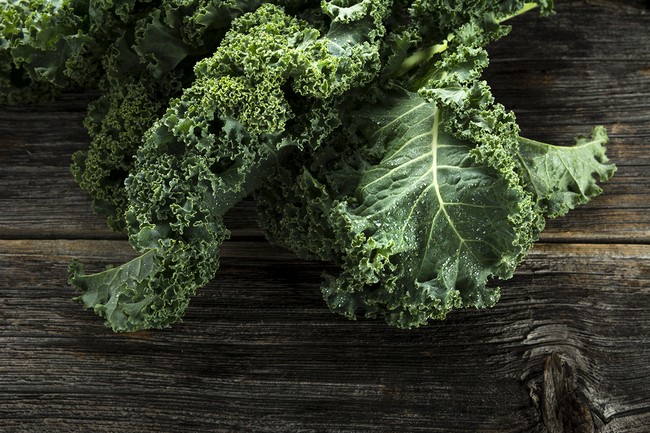- Make It Yourself Lavender Heart-Shaped Bath Bombs!
- 20 Things You Never Knew About “Down There”
- 12 Best Foods For Those Suffering From Arthritis Pain
- 12 Personal Hygiene Mistakes Almost Everyone Makes (Mom Never Told You About #4!)
- 15 Medicinal Plants And Herbs From The Cherokee People
- 12 Mind-Blowing Benefits Of Drinking Coconut Water During Pregnancy
- 12 Outstanding Winter Foods That Won’t Fatten You Up Like A Christmas Turkey
12 Of The Best Reasons You Should Load Up On The King Of Greens

Photo credit: bigstock.com
2. A Treasure Chest of Nutrition
Although some people think that kale is a type of lettuce, it actually belongs to the cabbage family. It is very closely related to cruciferous veggies such as broccoli and cauliflower. There are many different types of kale, but they all have one thing in common: They are all extremely nutritionally dense. One cup of kale has beta-carotene, vitamin C, vitamin K, calcium, vitamin B6, potassium, copper, and magnesium, just to name a few. All of this nutrition for a tiny 33 calories! Kale also packs three grams of protein, six grams of carbs, and tons of fiber.
3. It Can Help You Lose Weight
Kale is a very weight loss friendly food. Since it is so low in calories, but high in fiber, this bulky veggie can help you to feel full but add next to nothing in the way of calories or fat. Kale is considered to be a low energy density food. Studies have shown that eating plenty of foods with a low energy density is linked to easier weight loss.
4. Contains Powerful Antioxidants
Like most other leafy greens, kale is high in important antioxidants, including beta-carotene, flavonoids, polyphenols, and vitamin C. Free radicals cause oxidative damage in the body on a cellular level. Free radicals are one of the major causes behind premature aging and various diseases, including cancer. Antioxidants neutralize these free radicals. The two major flavonoids in kale, kaempferol and quercetin, act like antioxidants in the body. These flavonoids also are known to be anti-inflammatories, lower blood pressure, have anti-cancer, anti-viral, and anti-depressant compounds — just to name a few of the things they are known to do.
5. Super Detox Food
Since kale is filled with fiber, it can help the body to naturally remove toxins and other waste products. Fiber also helps to reduce your risk of developing colorectal cancer.
6. Great Source of Vitamin C
Vitamin C is a water-soluble antioxidant that is vital to the body. It supports healthy skin, a healthy immune system, and kills free radicals. Vitamin C is absolutely necessary to synthesize collagen, which is the most abundant structural protein your body has. Most people think that vitamin C is mainly in citrus fruits but kale is actually higher in vitamin C than just about any other vegetable. In fact, one cup of kale has more vitamin C than the average sized orange!
7. Supports Healthy Vision
One of the things almost everyone can look forward to is failing eyesight as we age. However, by consuming certain foods, such as kale, that contain certain antioxidants, you can avoid this — or at least delay it as long as possible. The two main antioxidants that support healthy eyesight are zeaxanthin and lutein. Kale is loaded with these two carotenoid antioxidants, and they can really help keep your eyesight healthy. In fact, numerous studies show that those who consume a diet high in these two antioxidants have a much lower risk of developing age-related macular degeneration or cataracts.
8. Lowers Cholesterol
If your doctor has told you that your cholesterol levels are too high, but you don’t want to take pharmaceutical drugs to lower your numbers, try kale. Kale contains compounds that naturally lower cholesterol in the blood, which can help to improve overall heart health. In fact, one study found that people who consumed steamed kale had as much as a 27 percent reduction in their cholesterol levels.
Continue to Page 3
































